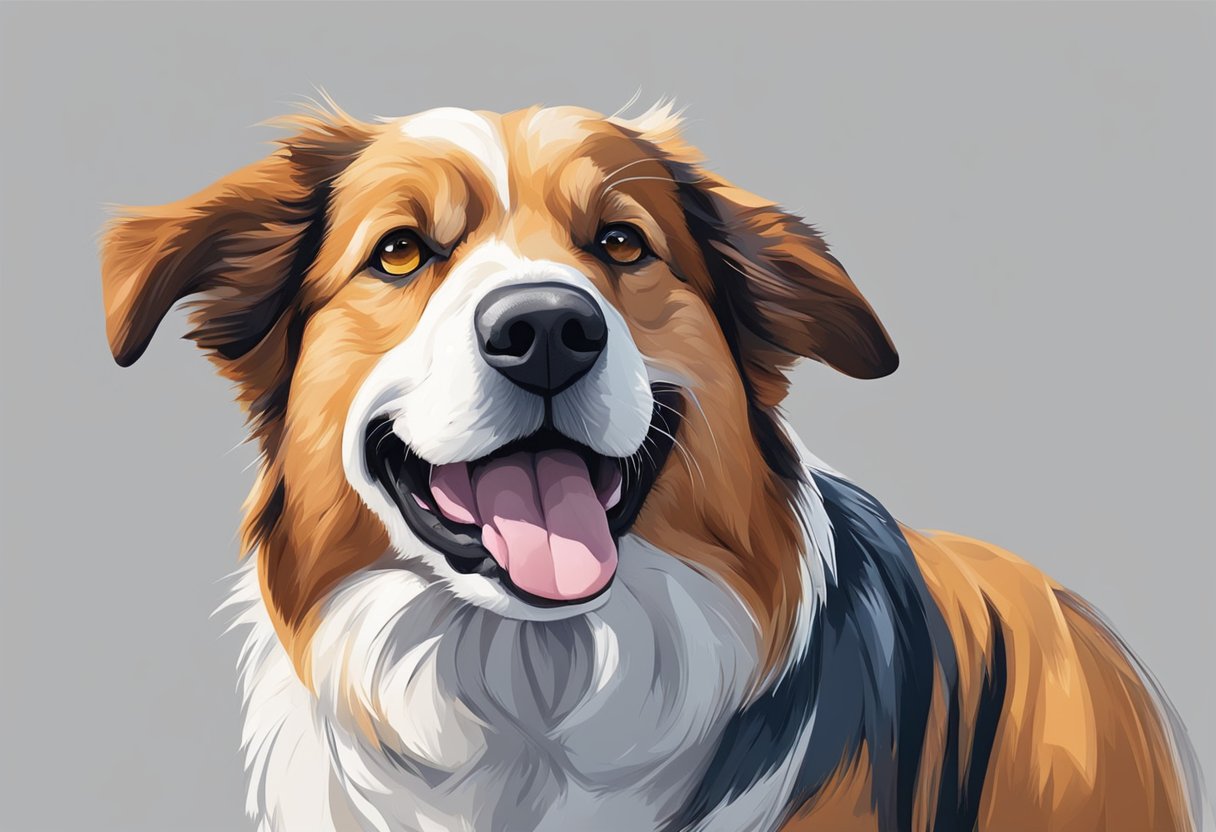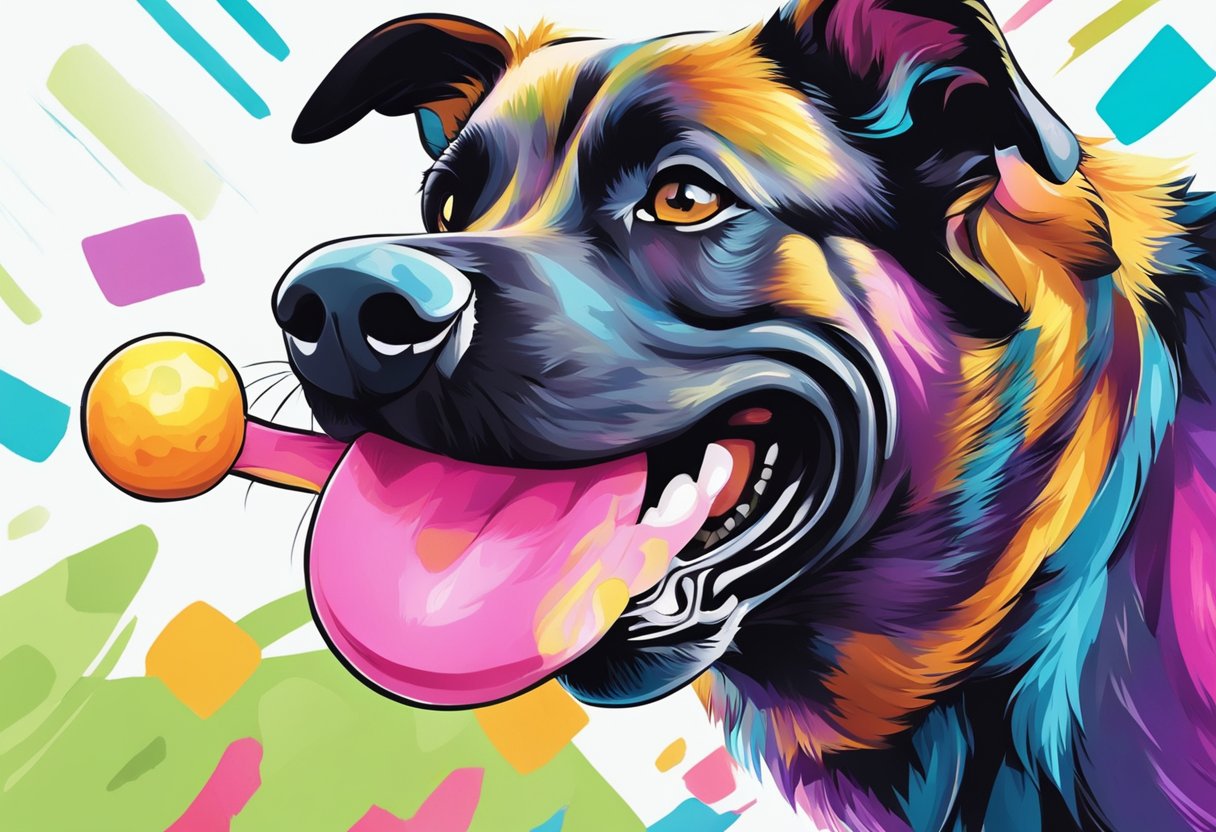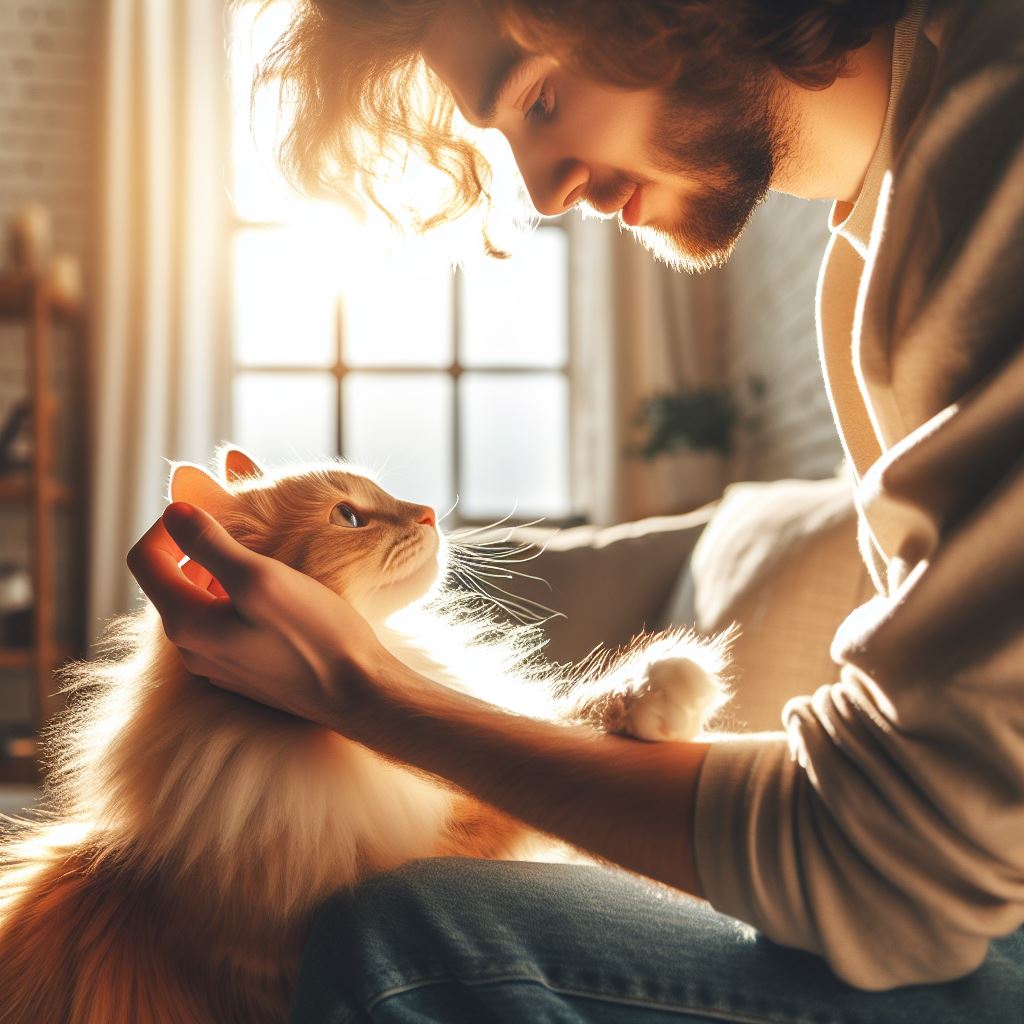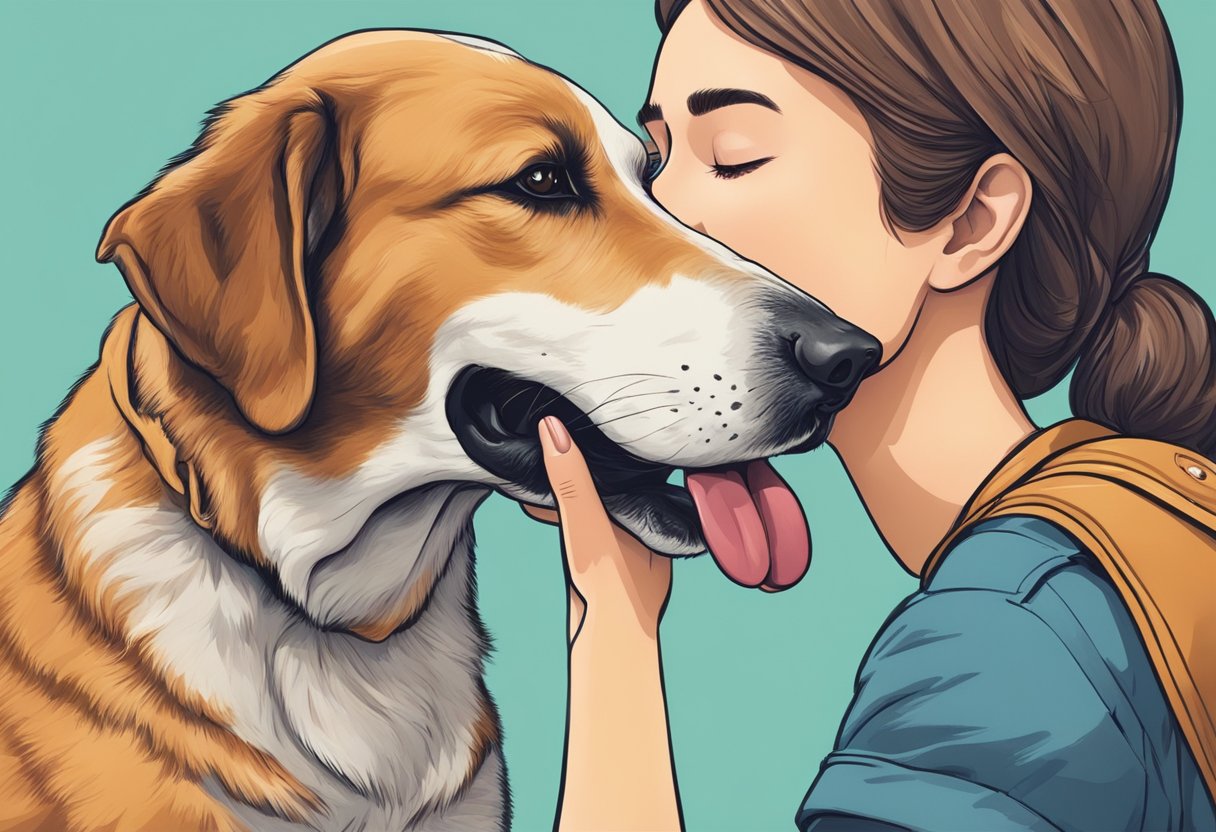Horses have long captivated humans with their majestic presence. One intriguing behavior that horses display is nodding their heads. This motion entails the horse repeatedly lowering and raising its head, often accompanied by a snorting sound. While it may appear to be a random movement, there are various reasons why horses engage in this head-nodding behavior.
Horses nod their heads as a form of communication with other horses. As social animals, horses use body language to convey messages to one another. Nodding their heads can indicate a friendly greeting or an invitation to play. Moreover, horses may nod their heads to demonstrate submission or respect towards a more dominant horse in their herd. By comprehending the significance behind this behavior, horse owners and handlers can better interpret their horse’s mood and intentions.
Horses may also nod their heads due to physical discomfort or pain. This could be caused by an uncomfortable saddle or bridle, which can lead to pressure on their neck muscles. In certain cases, head nodding can be a sign of more serious health issues like equine protozoal myeloencephalitis or cervical vertebral instability. Therefore, it’s crucial for horse owners to closely observe their horse’s behavior and consult a veterinarian if they suspect any underlying health problems.
Contents
- 1 Understanding Horse Behaviour
- 2 Head Nodding in Horses
- 3 Common Reasons for Head Nodding
- 4 Medical Conditions
- 5 Behavioural Issues
- 6 How to Address Head Nodding
- 7 Preventive Measures
- 8 When to Consult a Veterinarian
- 9 Frequently Asked Questions
- 9.1 What causes horses to bob their heads while walking?
- 9.2 Why do horses nod their heads while eating?
- 9.3 What is the reason behind horses nodding their heads in parades?
- 9.4 Why do horses nod to each other?
- 9.5 What is the significance of horses bobbing their heads when running?
- 9.6 Why is my horse’s head bobbing during the walk?
Understanding Horse Behaviour
To build a strong connection with horses and become a proficient rider, it is crucial to comprehend their behaviors. Horses are social creatures that rely on body language and vocalizations for communication. Below are some prevalent horse behaviors and their meanings:
Head Nodding
Horses naturally use head nodding as a way to communicate with both other horses and their riders. This behavior can manifest in various ways, including nodding their heads up and down, side to side, or in a circular motion. There are several reasons why horses engage in head nodding:
- Grazing: Horses display a characteristic behavior called “bobbing” when they graze, moving their heads up and down to reach the grass. This behavior indicates that the horse is feeling relaxed and content.
- Important Note: Horses may gesture by nodding their heads to grab the rider’s attention or to signal a desired direction of movement.
- Signs of agitation in horses include rapid or violent nodding of the head. This behavior indicates that the horse is feeling uncomfortable and may pose a danger if not handled appropriately.
Ear Position
Horses communicate their mood and intentions through the position of their ears. Here are a few common ear positions and their meanings:
- Forward: If you see a horse with its ears pointed forward, it means the horse is alert and paying attention to what’s happening around it.
- When a horse’s ears are pinned back, it indicates that the horse is feeling aggressive or fearful. This behavior often precedes kicking or biting.
- Sideways: When a horse’s ears are pointed sideways, it means they are relaxed and comfortable.
Body Language
Horses rely on their body language to express their mood and communicate their intentions. Here are a few common body language signals and their meanings:
- Tail Swishing: When a horse swishes its tail, it is often a sign of irritation or agitation. It could indicate that the horse is getting ready to kick or buck.
- Pawing: When a horse paws the ground, it usually indicates impatience or frustration. It could mean that the horse is eager to start moving or feeling uneasy in its current situation.
- Rolling is a behavior that horses exhibit when they are feeling relaxed and content. It often occurs after a bath or during moments of playfulness.
To become skilled equestrians and develop a strong bond with their horses, riders must understand horse behavior. This involves learning to interpret their body language and vocalizations.
Head Nodding in Horses
Horses are often observed engaging in head nodding behavior, which can have multiple interpretations depending on the situation. Generally, horses utilize head nodding as a form of communication towards both their fellow equines and humans.
Head nodding in horses is a common behavior that often signifies submission or respect. When a horse lowers its head and nods, it’s a way of acknowledging the authority of another horse or human. This behavior is frequently observed during training or riding situations when the horse responds to the cues given by its rider.
Head nodding in horses can also indicate a sense of relaxation or contentment. When a horse is feeling calm and at ease, it may gently nod its head as a way of expressing its emotional state. This behavior is commonly observed when horses are grazing or taking rest.
However, head nodding can also indicate discomfort or pain in horses. When a horse is feeling uncomfortable, it may nod its head as a way to alleviate the discomfort. This behavior is commonly observed in horses with dental issues or other health problems.
In general, horses naturally engage in head nodding, which can have various meanings based on the situation. By carefully observing their body language and behavior, we can gain valuable insights into what they are trying to convey.
Common Reasons for Head Nodding
Horses may nod their heads for various reasons. Some of these reasons are normal and others may indicate a health problem or behavioral issue. Here are some common explanations for why horses nod their heads:
1. Grazing
Horses are natural grazers and often nod their heads while eating grass or hay. This is a normal behavior that helps them efficiently consume food. Additionally, the nodding motion aids in clearing their airways, which is crucial for maintaining their respiratory health.
2. Communication
Horses often communicate with each other through body language, and one of the ways they do this is through head nodding. They may nod their heads as a way to greet or acknowledge the presence of another horse. Head nodding can also be a sign of submission or respect.
3. Pain or Discomfort
Horses may nod their head to indicate pain or discomfort. If a horse has a sore back or neck, they may nod their head in an attempt to alleviate the pain. It’s important to observe your horse’s behavior and consult with a veterinarian if you suspect they are in pain.
4. Habit or Behavioural Issue
Head nodding is a behavioral issue that some horses develop, which can impact their training and performance. This behavior is often linked to boredom, stress, or anxiety. If your horse excessively nods its head, it’s important to work with a trainer or behaviorist to identify and address the underlying cause.
Head nodding is a normal behavior observed in horses. However, it is crucial to closely observe your horse’s behavior and seek veterinary attention if you notice any signs of pain or discomfort.
Medical Conditions
Head nodding is a natural behavior for horses, but it can also be indicative of certain medical conditions. Here are some potential medical reasons why horses may nod their heads:
Equine Headshaking Syndrome
Equine Headshaking Syndrome is a neurological condition that causes horses to experience uncontrollable shaking or nodding of their heads. Sunlight, wind, and exercise are common triggers for this condition. In addition to the head movements, affected horses may also exhibit symptoms like sneezing, nose rubbing, and sensitivity to light.
Dental Issues
Dental issues like tooth decay, gum disease, and abscesses can cause horses discomfort and result in them nodding their heads. Improper feeding or a lack of dental care can also lead to dental problems in horses. To prevent these issues, it’s important to schedule regular dental check-ups for your horse and ensure they receive proper nutrition.
Ear Infections
When horses experience ear infections, they may show signs of discomfort by nodding their heads. Along with nodding, other symptoms of ear infections in horses can include tilting their heads, scratching at their ears, and having discharge from the affected ear. If left untreated, these infections can progress to more serious problems like hearing loss and balance issues.
Neck Pain
Horses may nod their heads due to neck pain, which can be caused by factors such as muscle strain, arthritis, or spinal cord injuries. Alongside head nodding, horses with neck pain may also show symptoms like stiffness, reluctance to move, and difficulty eating.
Head nodding in horses can be caused by various factors, not just medical conditions. If you observe excessive head nodding in your horse, it’s advisable to seek advice from a veterinarian to identify the root cause and receive proper treatment.
Behavioural Issues
Like any other animal, horses can experience behavioral issues that lead to excessive head nodding. Some of the common behavioral issues that can cause this behavior in horses include:
- Horses may nod their heads in an attempt to alleviate discomfort caused by pain. Pain can be brought on by various factors, including injuries, lameness, and dental issues.
- Stressed or anxious horses may also exhibit head-nodding behavior. Stress in horses can be attributed to various factors, including changes in their environment, training techniques, or social interactions.
- Boredom in horses can be demonstrated by head nodding, which is a sign of frustration. This feeling of boredom often arises from a lack of stimulation, such as limited turnout time or insufficient social interaction.
- Undesirable behaviors can develop in horses due to inadequate training or handling. These behaviors, like head nodding, can be challenging to correct and may necessitate the assistance of a skilled trainer.
To effectively address head nodding in horses, it is crucial to identify its underlying cause. If not treated, behavioral problems can escalate into more severe health issues and have a negative impact on the horse’s performance and overall well-being.
How to Address Head Nodding
If you notice that a horse is excessively nodding its head, it’s important to identify the root cause. Here are some steps you can take to address head nodding in horses:
- Seeking advice from a veterinarian is essential. They will conduct a comprehensive examination to identify any potential medical conditions that may be causing the head nodding. In addition, they can provide suitable treatment recommendations as needed.
- Inspect the horse’s equipment: A poorly fitting or uncomfortable bridle and bit can lead to head nodding in a horse. Make sure that the tack is properly fitted and does not cause any discomfort.
- Assess the horse’s training: If a horse hasn’t received proper training, it may exhibit head nodding as a sign of confusion or frustration. It’s recommended to collaborate with an experienced trainer to address any training-related concerns.
- Observe the horse’s behavior to identify any potential triggers for the head nodding. Pay attention to whether the horse only nods its head during specific gaits, as this could indicate discomfort or pain.
- Exploring alternative therapies can be a helpful approach for addressing head nodding in horses. Some owners have reported success with methods like massage or acupuncture. However, it’s crucial to consult with a veterinarian before pursuing any alternative treatments to ensure the best care for your horse.
Preventive Measures
To minimize excessive head nodding in horses, there are various steps that horse owners and handlers can implement. These measures include:
Proper Tack Fit
Properly fitting tack is crucial for preventing head nodding in horses. When the tack doesn’t fit correctly, it can cause discomfort and pain, which then leads to head nodding. It’s important for horse owners to regularly check their horse’s tack to ensure it fits well and isn’t causing any discomfort
Regular Dental Checkups
When horses have dental issues, they may exhibit head nodding in an effort to alleviate pain and discomfort. It’s important to provide regular dental checkups and care for horses to prevent these problems and reduce the occurrence of head nodding.
Balanced Diet
Maintaining a balanced diet is vital for the overall health of horses, including their dental well-being. Not consuming essential nutrients can result in dental issues and head nodding. It is important for horse owners to ensure that their animals are receiving a well-rounded diet that fulfills all of their nutritional requirements.
Proper Training
To prevent excessive head nodding in horses caused by stress and anxiety, proper training is key. When horses are well-trained and have a trusting relationship with their handlers, they are less likely to exhibit this behavior. Horse owners should prioritize building trust and providing appropriate training to minimize the horse’s stress levels and reduce head nodding.
Veterinary Checkups
Bringing your pet for regular veterinary checkups can be beneficial in identifying any underlying health conditions that may contribute to head nodding. Detecting and treating these issues early on can help prevent further complications and decrease the chances of head nodding occurring.
When to Consult a Veterinarian
When a horse’s head nodding appears excessive or abnormal, it could be a sign of an underlying health problem. In these situations, it is crucial to seek advice from a veterinarian.
- Head nodding is accompanied by other symptoms: If the horse exhibits other symptoms such as lethargy, loss of appetite, or lameness, it could be a sign of an underlying health issue.
- Head nodding is persistent: If the horse continues to nod its head for an extended period, it could be a sign of a problem.
- Head nodding is sudden or severe: If the horse suddenly starts nodding its head more frequently or more severely, it could be a sign of an acute health issue that requires immediate attention.
- Head nodding interferes with horse’s daily activities: If the head nodding interferes with the horse’s ability to perform regular activities such as eating, drinking, or moving, it is a cause for concern.
In addition to observing these indicators, it is crucial to keep track of the overall health and behavior of the horse. Any alterations in behavior or health should be promptly reported to a veterinarian.
Frequently Asked Questions
What causes horses to bob their heads while walking?
As horses walk, they naturally bob their heads. This movement is an integral part of their gait, helping to balance the motion of their legs and body as they move forward. The rhythmic nodding of their heads also aids in maintaining balance while in motion.
Why do horses nod their heads while eating?
While eating, horses have a natural habit of nodding their heads. This motion actually serves a purpose – it helps them swallow their food more easily. By nodding, the food is propelled down their throat and into their stomach, preventing any potential blockages or discomfort in their throat.
What is the reason behind horses nodding their heads in parades?
During parades, horses may nod their heads as a reaction to the bustling and stimulating atmosphere surrounding them. This behavior can also serve as a means of communication between the horse, its rider, and other horses participating in the parade.
Why do horses nod to each other?
Horses might use a nodding motion as a means of communication. This action can indicate respect or submission, or it might be a way for horses to establish dominance or hierarchy within their social group.
What is the significance of horses bobbing their heads when running?
Horses bob their heads while running to maintain balance and focus on the ground ahead. This movement also helps them absorb the impact of their hooves, which reduces strain on their legs and joints.
Why is my horse’s head bobbing during the walk?
If you notice your horse’s head bobbing during a walk, it could be a sign of discomfort or pain. This movement may also indicate that the horse is feeling nervous or anxious. It’s essential to have a veterinarian or equine specialist assess your horse to determine the cause of the head bobbing.












